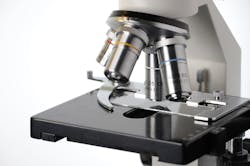New research suggests that targeting autoimmune inflammation associated with amyotrophic lateral sclerosis (ALS) using two drugs, one of them already approved for multiple sclerosis, could be a promising approach for treatment.
There are two types of ALS: familial ALS, which is passed down through families and accounts for about 5-10% of cases, and sporadic ALS, which occurs without any family history and makes up about 90-95% of cases. The current study focused on sporadic ALS.
To test potential treatments, researchers in the UCLA Department of Integrative Biology and Physiology led by Milan Fiala, MD, of the David Geffen School of Medicine at UCLA treated immune cells from sporadic ALS patients with two substances: dimethyl fumarate (DMF) and molecule H-151. DMF is a drug already approved for treating multiple sclerosis. H-151 has been shown to block autoimmunity in laboratory models.
They found both DMF and H-151 reduced the expression of certain proteins called cytokines and granzymes, which are involved in the inflammatory process. The researchers also found that the effect of DMF was enhanced when combined with epoxyeicosatrienoic acids, certain fatty acids that can be found in the diet.
The researchers say based on these findings, DMF and H-151, along with specific fatty acids in the diet, should be considered as potential candidates for a clinical trial to target the autoimmune inflammation in ALS that does not respond to current therapies. They plan to seek approval for a clinical trial after more investigation in additional ALS patients’ immune cells.

